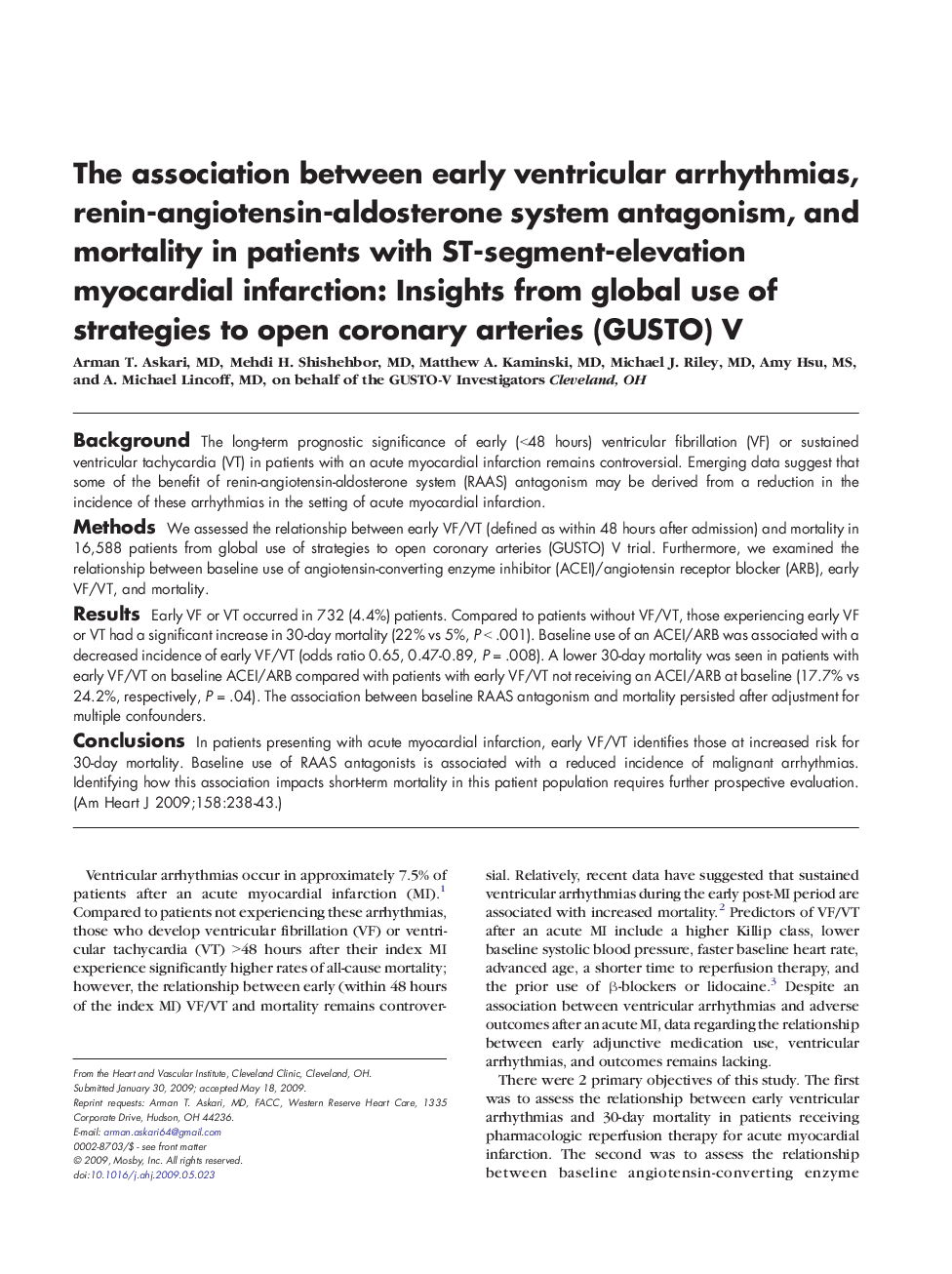| Article ID | Journal | Published Year | Pages | File Type |
|---|---|---|---|---|
| 2849694 | American Heart Journal | 2009 | 6 Pages |
BackgroundThe long-term prognostic significance of early (<48 hours) ventricular fibrillation (VF) or sustained ventricular tachycardia (VT) in patients with an acute myocardial infarction remains controversial. Emerging data suggest that some of the benefit of renin-angiotensin-aldosterone system (RAAS) antagonism may be derived from a reduction in the incidence of these arrhythmias in the setting of acute myocardial infarction.MethodsWe assessed the relationship between early VF/VT (defined as within 48 hours after admission) and mortality in 16,588 patients from global use of strategies to open coronary arteries (GUSTO) V trial. Furthermore, we examined the relationship between baseline use of angiotensin-converting enzyme inhibitor (ACEI)/angiotensin receptor blocker (ARB), early VF/VT, and mortality.ResultsEarly VF or VT occurred in 732 (4.4%) patients. Compared to patients without VF/VT, those experiencing early VF or VT had a significant increase in 30-day mortality (22% vs 5%, P < .001). Baseline use of an ACEI/ARB was associated with a decreased incidence of early VF/VT (odds ratio 0.65, 0.47-0.89, P = .008). A lower 30-day mortality was seen in patients with early VF/VT on baseline ACEI/ARB compared with patients with early VF/VT not receiving an ACEI/ARB at baseline (17.7% vs 24.2%, respectively, P = .04). The association between baseline RAAS antagonism and mortality persisted after adjustment for multiple confounders.ConclusionsIn patients presenting with acute myocardial infarction, early VF/VT identifies those at increased risk for 30-day mortality. Baseline use of RAAS antagonists is associated with a reduced incidence of malignant arrhythmias. Identifying how this association impacts short-term mortality in this patient population requires further prospective evaluation.
